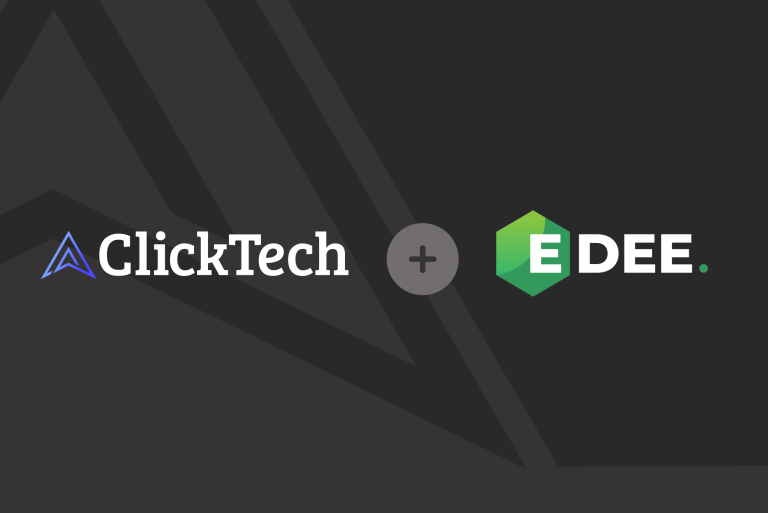PPC remarketing has grown so much since 2010 when it started with Google Ads.
This guide will look at what remarketing is, how it works, benefits, and costs so you get the most out of your remarketing campaigns and follow best practices.
What is PPC remarketing?
Remarketing is the practice of showing ads to people who have already visited an advertiser’s website.
While retargeting and remarketing are often meant as the same thing, remarketing can refer to collecting user information to create lists which are used for things like customer lists.
Retargeting is the act of displaying ads to people who have visited your website, reminding them of the benefits you are offering with a handy link to your landing page. It’s a fantastic way to acquire more leads.
As they are used interchangeably, we will carry on using “remarketing” for the rest of the article to cover both.
How does it work?
Commonly, when we browse on a website, a cookie box pops up, asking us to “accept” or “decline.” When you click “accept,” you are giving a business or company the permission to remarket products to you. When someone views your site, a few lines of code drop this cookie into their browser.
This cookie tracks the site visit without storing sensitive information like names and addresses. As previous website visitors browse the internet and see your banner ads, this is the cookie in action, giving you insight into their journey online.
Google uses a wide variety of tools such as the Google Analytics tracking code, which provides analytics data, such as a physical location and how long they’ve spent on your website, helping you to present the appropriate ads for them when they surf the web. There are other Google Ads remarketing features such as:
- Standard remarketing
- Dynamic remarketing
- Remarketing lists for search ads (RLSAs)
- Video remarketing
- Customer list remarketing
Each specific tool allows you to set custom preferences about the visitors of your site. The further you dive into this, the more beneficial the results.
Microsoft
Microsoft also provides remarketing tools through its advertising platform. While its options aren’t as comprehensive as Google, you can use Remarketing in Paid Search, which can allow you to serve your ads to a specific audience.
There are also options through Microsoft Ads to create remarketing lists around certain factors such as loyalty members and those that abandon their shopping cart. You can also make adjustments to your remarketing based on demographics such as age, gender, and location.
While the larger search engines are preferable to help you target customers, it’s also possible to do it via social media platforms like Facebook using the Facebook Pixel. The Facebook Conversion Pixel works very similarly to traditional cookies, but the difference between Facebook Pixel and website cookies is that they track people, rather than the device.
For example, if someone visited one website using three different devices, they would be classed as three separate visits by three different people. Facebook can attribute multiple devices to one person who is more effective for personal insight.
Benefits of PPC remarketing
Remarketing is a fantastic way to promote products to people who are already aware of your existence. For various reasons, there are many people who don’t convert when they visit you for the first time.
Such is the way of the customer, they may need more time to browse, or they skipped your website are some of the many reasons out there.
As remarketing increases visibility, it becomes that gentle reminder to customers that you are still there and can provide a solution to their problem. This “top of mind” awareness (promoting yourself through familiarity) is a handy psychological tool.
The other reason remarketing works so well is that it can increase conversions by up to 70%. On average, of those that visit your website, only 2% of them will convert. Remarketing is your chance to convert the other 98%.
This goes back to that age-old approach of lather, rinse, and repeat with a bombardment of your imagery.
Types of remarketing
While remarketing is a way to target people who have visited your website, you can use remarketing to improve your performance in numerous ways, while still targeting the people that matter to you:
- Search Remarketing: where your ads appear at the top of the search engine results.
- Video Remarketing: where your ads appear as pre-roll video advertisements on platforms like YouTube.
- Display Remarketing: where your ads appear as display advertisements on other websites.
- Dynamic Remarketing: uses ads that include services or products that people have already viewed on your site.
- Social Media Remarketing: on platforms like Facebook, but there are other providers such as LinkedIn and Pinterest that use remarketing. This aims to serve ads to those who have visited your website while browsing other social media channels and websites.
- Customer List Remarketing: where you can upload lists of contact information from your customers.
How much does it cost?
One of the key benefits of PPC remarketing is its cost-effectiveness.
When you compare remarketing to search ads, using something like keywords, remarketing ad clicks can cost significantly less. For example, the average Google search cost $1.23, whereas a Display Network cost $0.66, a significant difference in costs. But as the potential conversion rate in remarketing is 1.86% in comparison to a search resulting in 1.81%, its cost-effectiveness is evident.
Case studies
Remarketing is incredibly widespread, and if you’re wondering if it works for your industry, there are case studies that highlight the impact of retargeting regardless of the industry:
- World First, one of the UK’s most well-known foreign currency exchange services, reduced cost per acquisition (CPA) by 99% and increased full account signups in Australia by 105% (CXL)
- Using Google Analytics, Watchfinder achieved an ROI of 1,300% and CPAs 34% cheaper than non-brand search campaigns using remarketing (Think With Google)
- Lumension, a global leader in endpoint security software, increased lead volume by 81% and increased targeted influencer traffic by 10% by working with other media portals to retarget visitors who showed an interest in competitors (Small Biz Trends)
Conclusion
PPC remarketing is an incredible way to increase conversions using a wide variety of techniques.
The moral of the story is that even if someone has been to your website before and have previously been your customer, it’s always possible to get them back.




